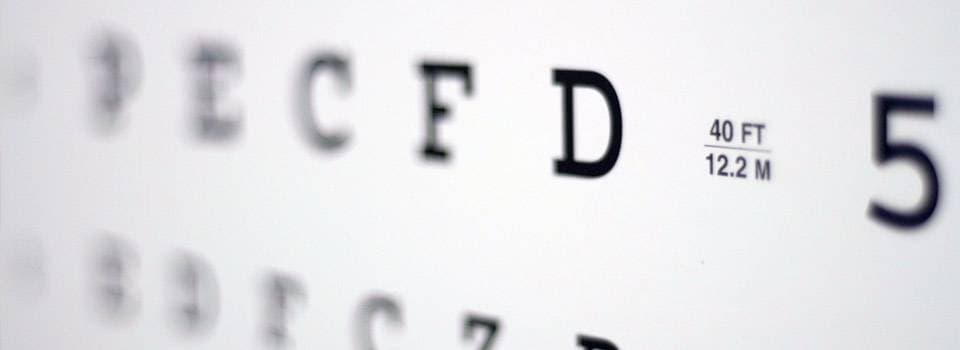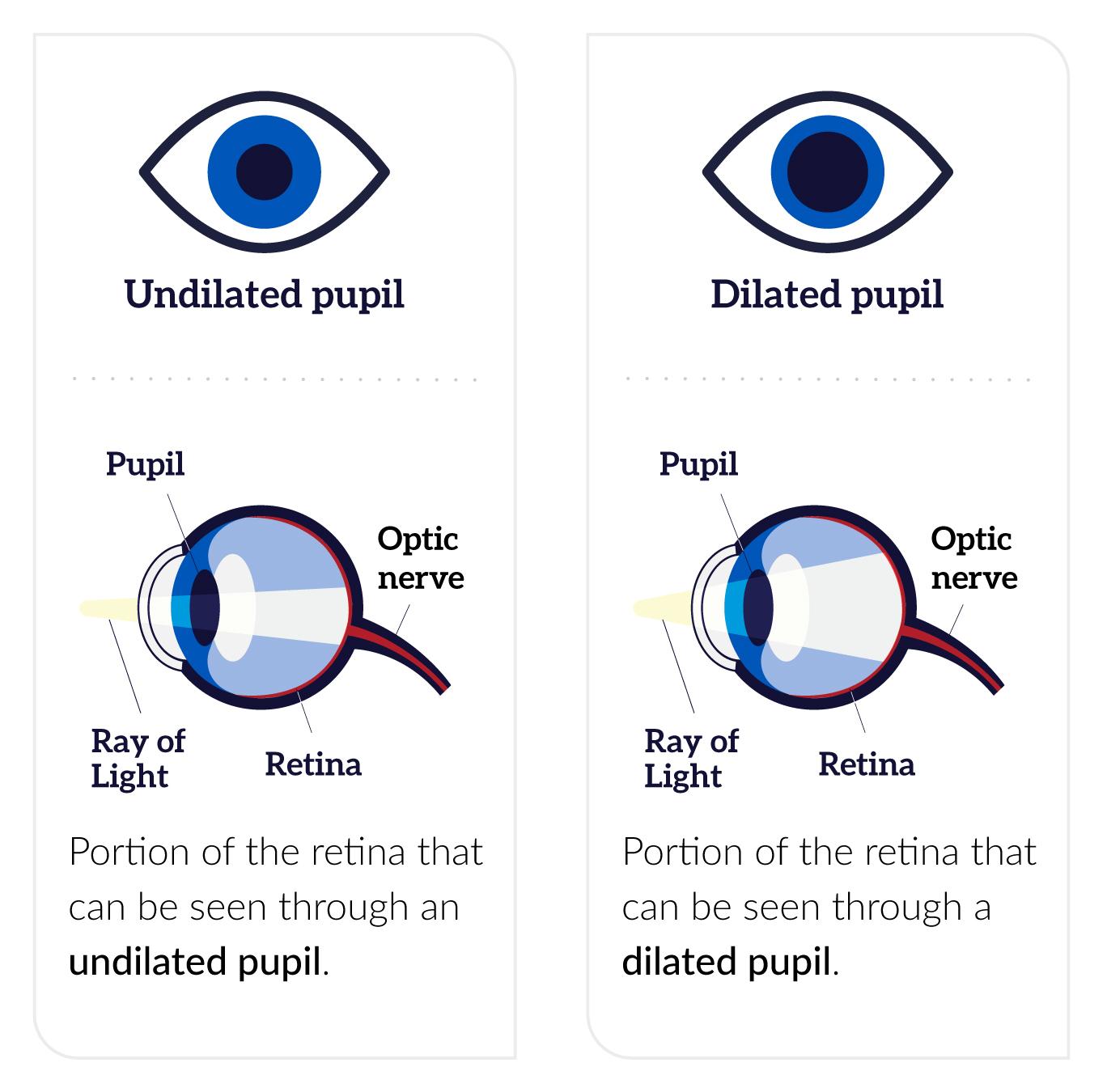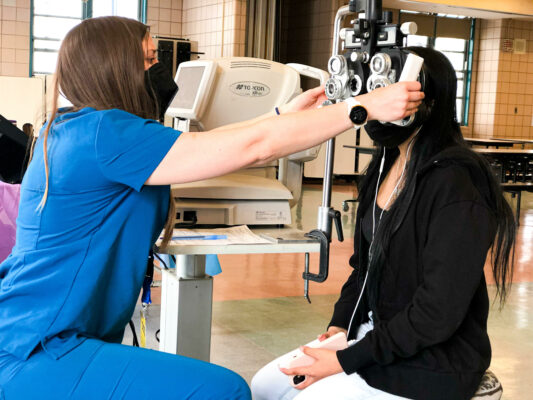Eye Dilation
Eye Dilation can be a part of your eye exam. It helps determine the wellness of your overall health. Eye exams identify risk factors regarding your eyes, which should make you prioritize getting an eye exam. Not only can it assist your optometrist to diagnose common eye problems, but an eye exam can also reveal any diseases or conditions like:

It’s not always certain that you aren’t at risk of having any health issues, even if your eyes feel perfectly fine, or your vision is 20/20. Having regular eye exams can keep you informed on your overall health and detect these conditions, possibly at their earliest stage to be treated. If you haven’t had an eye exam within two years or can’t remember the last time you had one, we suggest you book an eye exam as soon as possible.
How does Eye Dilation Work?
Eye dilation is the process of changing the size of your pupils to get a full detailed examination. The view of the back of the eyes is limited unless your eyes are dilated. Your optometrist will start by applying medical eye drops specifically for eye dilation. After the application of the eye drops, it’s completely normal to experience blurred vision. When your eyes are dilated, it allows more light to enter your eyes. Once the eye drops have taken affect, your optometrist will continue with the process of the comprehensive eye exam.

What does your eye exam involve?
The process of an eye exam is to check for anything abnormal within your eyes. Your optometrist will use a bright light when examining your eyes after dilation. An eye exam may also involve tests like:
- Tonometry test: Used to measure your eye pressure by using a machine that puffs air into the eye.
- Pupillary Reaction: Optometrist observes your eyes reaction to light or close objects
- Visual Test: Your optometrist will ask you to read letters from both close and far distances.
- Eye muscle function test: Your optometrist will ask you to follow an object. This will help to check for problems with the muscles around the eye.

How long does it take for your eyes to dilate?
Once the medical eye drops are applied, it can take 15-30 minutes for your eyes to be fully dilated.
How long does eye dilation lasts?
The duration of eye dilation varies from person to person. These are the factors that affect duration. People with lighter eyes tend to have a longer lasting duration than darker colored eyes. Your age can also be a factor. Younger children have better focus mechanisms in the eye so they require a stronger dose.
What are the side effects on eye dilation drops?
Eye dilation causes several side effects. Once your eyes are dilated you will experience blurry vision, difficulty focusing, light sensitivity, or stinging when the eye drops are applied.
Managing the side effects
Being aware of the side effects before having your eyes dilated will help you find the best way to manage it.
Driving
Since your eyes are more sensitive towards light, it’s safer to not drive. Having your eyes dilated can affect your ability to drive safely due to glare and lights.
Sunglasses
Wearing sunglasses is crucial when wearing them after getting your eyes dilated. Since your eyes are sensitive sunglasses will help from bright glares and lights.
Resting your eyes
Your eyes will have trouble reading or using the computer, so it’s best to avoid doing tasks that induce eye strain.
The Takeaway
In conclusion, dilating your eyes can be inconvenient but is essential to get detailed information during an eye exam. Having a comprehensive eye exam with eye dilation is recommended every two years.


Worksite
All Employees Served With Direct Vision Care All In One Day At Their Worksite!.
Glasses2Classes
Vision screenings, eye exams, and eyewear for all students at their schools!
Community Events
Provide Easy Access To Eye Care & Eyewear for Your Entire Community!
At Home
Skip the trip! We travel directly to all fragile homebound patients!